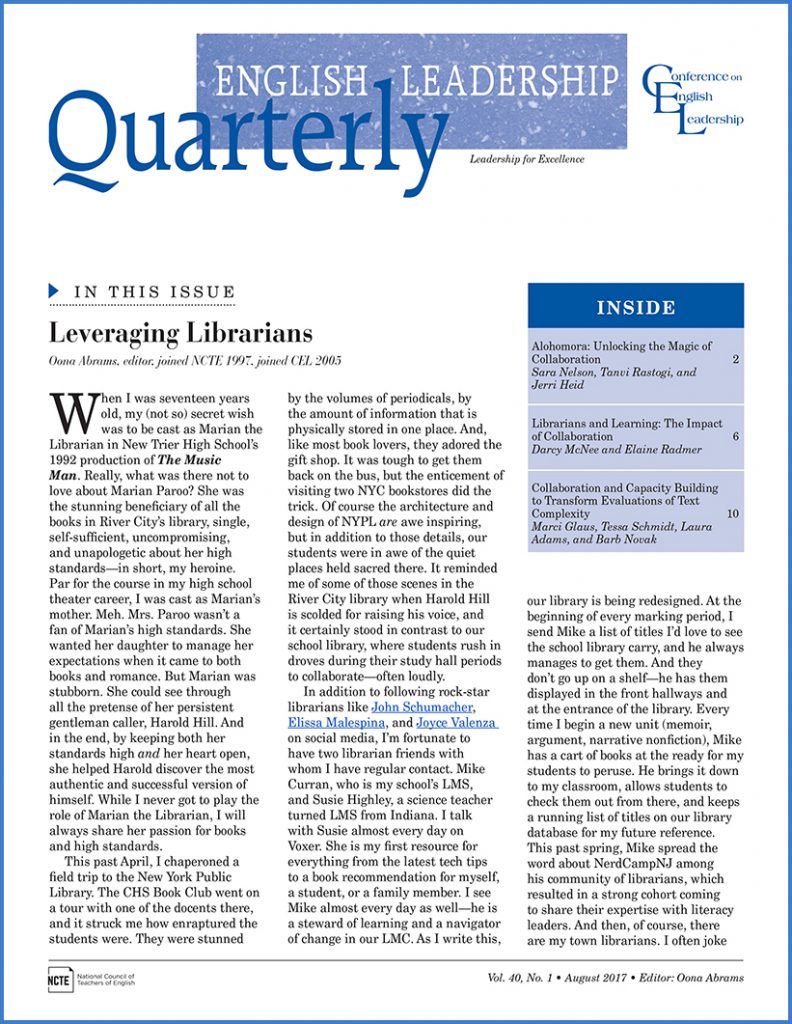Whether you are an elementary language arts teacher or a literature professor, NCTE has a peer-reviewed journal for you, with content reflecting current research, trends, and strategies. Our 10 professional journals are available in paper and online, along with an extensive archive of past issues.
Subscribers have access to all the articles in their journal, from present day articles to those in the digital archive. But did you know that in each issue, several articles are made free to everyone? English Leadership Quarterly, Vol. 40, No. 1, August 2017 is themed “Leveraging Librarians.” Throughout this issue of ELQ, you’ll find ways to be inspired to collaborate in the ways we see modeled in these authors’ stories.
“Librarians and Learning: The Impact of Collaboration” by Darcy McNee and Elaine Radmer shares about four mini-lessons on Internet searching and source evaluation. These lessons were taught in the library/learning commons and were integrated into various inquiry projects that students were assigned by their classroom teachers. The goal was to engage students in authentic tasks, allow them to work collaboratively with their peers, and use their existing technological skills in order to increase their online search and source evaluation skills in a way was that meaningful and transferable.
How can you transfer this idea to your classroom? Try this idea from ReadWriteThink.org!
Children are naturally curious—they want to know “how” and “why.” Teaching research skills can help students find answers for themselves. These lessons are all part of a research skills unit where the students complete a written report on a state symbol. These lessons teach students to Examine Electronic Sources, get “Hints about Print“, “Skim, Scan, and Scroll“, take “Notes, Quotes, and Fact Fragments“, and “Cite Those Sources!”
How could you make this idea work in your classroom?

